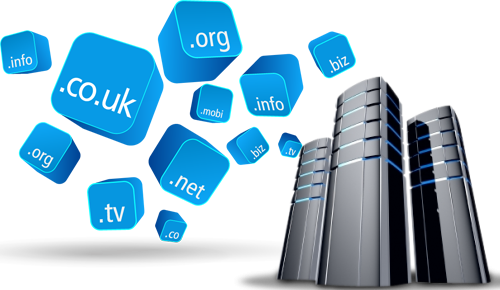Finding the Cloud Computing Approach That’s Right For Your Business

As businesses look to the future, cloud computing is becoming an ever more important part of the corporate landscape. From large enterprises to small businesses, cloud computing has become a reliable and cost effective hosting solution for today’s businesses. But which cloud computing approach is right for your business?
Whether you’re just starting out on your cloud computing journey or an experienced expert, understanding the various cloud computing options available is essential for success. From Infrastructure-as-a-Service (IaaS) to Platform-as-a-Service (PaaS), you need to identify the different approaches and find the one that best fits the goals of your business.
Getting Started: Exploring Your Cloud Computing Options
The first step in finding the right cloud computing approach is to understand the differences between the various hosting services. A helpful starting point is to think of IaaS and PaaS as two overarching categories of cloud computing.
IaaS provides businesses with an easy way to rent infrastructure, scaling and pay-as-you-go access to computing and storage resources. With IaaS providers such as Amazon Web Services (AWS) and Microsoft Azure, businesses can access state-of-the-art server, storage, and networking solutions which can be quickly scaled to meet the company’s needs.
PaaS solutions offer similar advantages to IaaS yet go a step further in providing a comprehensive platform-as-a-service (PaaS). This eliminates the need to purchase, install and maintain software solutions. With a PaaS, such as Google App Engine, businesses can quickly create cloud-based applications with minimal effort.
An Education in Cloud Computing
To make the right choice for your business, it’s important to understand the different cloud computing options and their associated pros and cons. To ensure you’re selecting the best approach for your company, take the time for an in-depthHosting Education.
When researching cloud computing options, consider factors such as scalability, security, data latency, server uptime, disaster recovery, and the pricing model. All of these factors can dramatically affect the performance and reliability of your cloud computing solutions, so it pays to take your time and select the best hosting solution for your specific business needs.
Conclusion
Finding the right cloud computing approach for your business is essential for success. By taking a thorough Hosting Education and exploring the different hosting solutions, you can ensure you’re selecting the perfect approach and taking advantage of the many benefits cloud computing has to offer.
For businesses of all sizes, Cloud Computing has come to be an integral part of the technology equation. Businesses are turning to the cloud for improved scalability, flexibility, and cost-efficiency. Yet, understanding the right hosting approach and approaches that will benefit their specific business can be difficult. Finding the cloud computing strategy and services can be transformative - if your business chooses the right one and employs it correctly.
When engaging in a cloud computing education with your business, the first step is to determine your business’ needs. Are you looking for improved scalability or do you need enhanced flexibility? Do you have multiple needs or are you looking for a single hosting approach? Clarifying your goals assists in understanding the best hosting services and approaches that could benefit your business.
Once you understand the needs of your business, you can begin to explore the variety of hosting services available to you. Popular hosting services and approaches include cloud hosting, SaaS, IaaS, PaaS, and hybrid hosting. For starters, cloud hosting is an affordable and flexible hosting approach that may be suitable for a wide range of businesses. This hosting approach often centers around the use of shared resources, such as common applications and web services provided through server infrastructure.
SaaS, or Software as a Service, provides business with a secure, web-based platform for application deployment and storage. Instead of downloading applications on their own server, companies have an have access to applications, such as ERP, accounting and customer relationship management systems, using the web. Additionally, this hosting approach is particularly well suited for businesses looking for an increased amount of scalability.
IaaS, or Infrastructure as a Service is another popular hosting approach. Through IaaS, businesses receive virtualized computing power, central storage and user access management capabilities. This hosting approach is suitable for businesses that require the scalability, flexibility and predictability of cloud computing without the complexities of the development environment.
PaaS, or Platform as a Service, is a popular hosting approach that provides businesses with access to networks, storage and hardware resources. This hosting approach, most often used for business applications, business analytics, and workflow creation, blends cloud, mobile and API components into a single platform.
Hybrid Hosting combines multiple hosting approaches to take advantage of the benefits of each of the hosting strategies. This hosting approach offers businesses improved scalability, security, and cost efficiency.
Your cloud computing strategy should provide a setup that ensures maximum cost efficiency, scalability, and flexibility for your business. By educating yourself on the hosting services, approaches, and strategies available, your business will be able to deploy the right cloud hosting approach to best serve your needs.
When it comes to running a business, it’s important to have the right tools and technology. Cloud computing is one of those tools that help increase productivity, improve collaboration and reduce costs. But, knowing which approach is right for your business is not always easy. That’s why understanding the basics of cloud computing and doing your research on the different types of cloud hosting can help you make the right decision.
When it comes to understanding cloud computing, it’s important to know the two most common types – Infrastructure as a Service (IaaS) and Platform as a Service (PaaS). IaaS involves the physical infrastructure of servers, storage, networks and software. It provides access to virtual resources without the need for capital investment for hardware or software. Examples of IaaS are Amazon Web Services (AWS) and Microsoft Azure. PaaS provides a platform for creating, testing, deploying and managing applications in the cloud. Examples of PaaS include Salesforce and Microsoft Windows Azure.
When it comes to choosing the right cloud hosting for your business, there are three major types to consider – Public Cloud, Private Cloud and Hybrid Cloud. A Public Cloud offers mass scalability, meaning more customers are hosted on the same shared resources. This makes it a very attractive option for businesses that don’t need to keep large amounts of data confidential. Private clouds are dedicated to a single customer, making them more secure and reliable. A Hybrid Cloud allows businesses to combine the benefits of public and private cloud hosting for a custom solution.
The type of cloud hosting chosen will depend on the business’ specific needs. Factors to consider will be performance, security and cost. Performance-wise, those businesses that require fast, reliable cloud hosting services should consider a Dedicated Hosting solution or private cloud solution. Businesses requiring enhanced security for their data should opt for a Private Cloud model. When it comes to cost, businesses can choose from a wide range of pricing models and payment options, from flat monthly fees to usage-based billing.
Ultimately, the best approach to choosing the right cloud hosting solution is to consult with a hosting expert. They are best-placed to review a business’ individual requirements, compare the different options and make a recommended solution. Consultants often have expertise in both IaaS and PaaS solutions, and can provide valuable advice in both areas.
By taking the time to research and understand the different concepts of cloud computing, businesses will be in a better position to make the right choice. Utilizing the expertise and hosting education of an experienced consultant is also a great way to find the perfect solution and make the most of the cloud.









